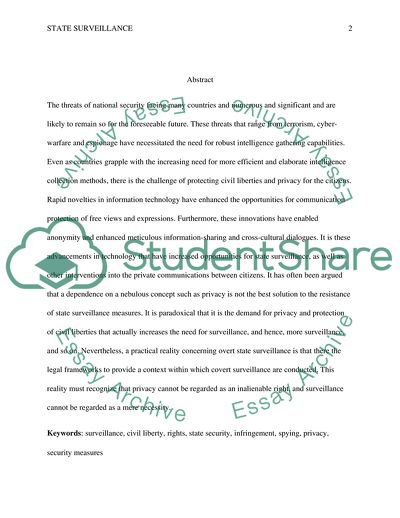Cite this document
(Big Brother: State Surveillance in the 21st Century Essay Example | Topics and Well Written Essays - 1500 words, n.d.)
Big Brother: State Surveillance in the 21st Century Essay Example | Topics and Well Written Essays - 1500 words. https://studentshare.org/politics/1853911-big-brother
Big Brother: State Surveillance in the 21st Century Essay Example | Topics and Well Written Essays - 1500 words. https://studentshare.org/politics/1853911-big-brother
(Big Brother: State Surveillance in the 21st Century Essay Example | Topics and Well Written Essays - 1500 Words)
Big Brother: State Surveillance in the 21st Century Essay Example | Topics and Well Written Essays - 1500 Words. https://studentshare.org/politics/1853911-big-brother.
Big Brother: State Surveillance in the 21st Century Essay Example | Topics and Well Written Essays - 1500 Words. https://studentshare.org/politics/1853911-big-brother.
“Big Brother: State Surveillance in the 21st Century Essay Example | Topics and Well Written Essays - 1500 Words”. https://studentshare.org/politics/1853911-big-brother.


